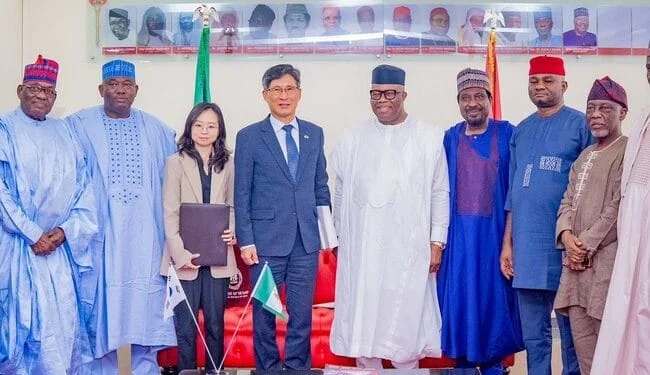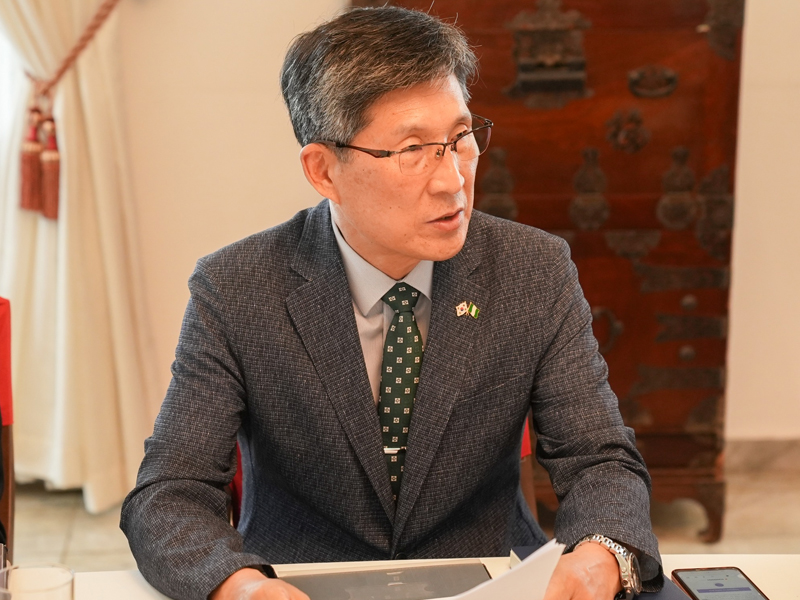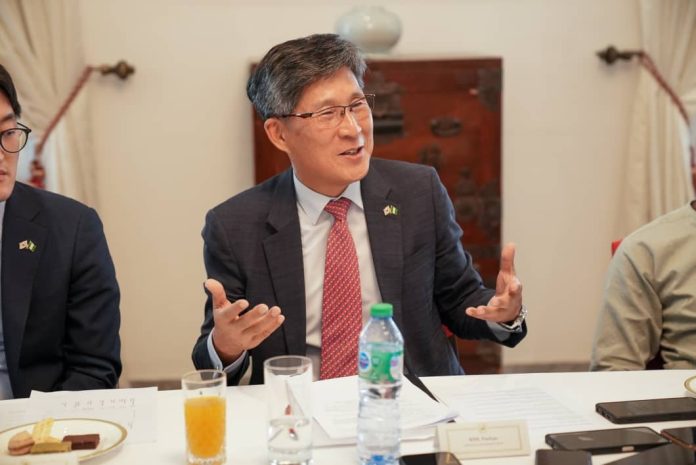
Nigeria and South Korea’s relationship hit 45 years in March. The Ambassador of Korea to Nigeria, Ambassador Kim Pankyu, said his country is ready to support Nigeria’s move to ensure food security. He also said the bilateral trade between the two countries had grown by 38 per cent in the past year. The envoy spoke about other areas of collaboration and plans for the future.

Reflecting on our last meeting, I recall that it was in May of last year, just 50 days after I arrived in Abuja. Since then, the relationship between Korea and Nigeria has grown significantly. One of the most notable milestones was the first-ever Korea-Africa Summit last June. We facilitated high-level discussions between Korea and Nigeria, including meetings between the Ministers of Foreign Affairs, Industry and Trade, and Tourism. The Nigerian delegation also participated in the Korea-Africa Business Summit and various forums on ICT, health, tourism, and energy. This was a major step in strengthening Korea’s engagement with African countries, fostering inclusiveness and cooperation.
Now that Korea and Nigeria are marking their 45th anniversary of diplomatic relations, what would you say have been the gains of their friendship over the years?
This year marks the 45th anniversary of diplomatic relations between Korea and Nigeria. We are committed to further strengthening our ties, particularly in economic cooperation, security, and people-to-people exchanges. Nigeria remains Korea’s most important trade and investment partner in Africa. It accounts for 10% of Korea-Africa trade and over 70% of Korea’s project contracts in Africa.
In 2024, our bilateral trade increased by 38.6 per cent, reaching over 2.2 billion US dollars, reflecting our strong economic partnership. At the corporate level, for example, Korean biotech company SD Biosensor’s HIV rapid test kit has been approved for packaging in Nigeria by Colexa Biosensor Ltd. and Codix Pharma Group. This year alone, up to 15 million kits will be procured by governments across Africa and major international organisations.
Looking ahead, I believe there is room for even greater cooperation in trade and investment. Both countries are working closely to conclude key agreements as early as possible. The Double Taxation Avoidance Agreement and the Trade and Investment Promotion (TIPF) MOU will mark a new chapter in our economic relations.
With over 40 years of experience in military and security affairs, I am committed to enhancing our security collaboration. In particular, maritime security in the Gulf of Guinea is critical for both Nigeria and transit countries like the Republic of Korea. Every day, several of our merchant ships pass through the Gulf of Guinea, and around 40 of our fishing vessels, carrying hundreds of fishermen, are also operating there. We are committed to increasing Korea’s support for capacity building in the Nigerian military and security sectors.
Additionally, we hope to finalise defence industry cooperation MOUs that have been under discussion for some time. Beyond economic and security partnerships, the Korean Embassy actively supports cultural and development initiatives through KOICA and the Korean Cultural Centre.
Recently, we opened the Korea-Nigeria Information Access Centre in Abuja, supporting Nigeria’s digital capacity-building efforts.



